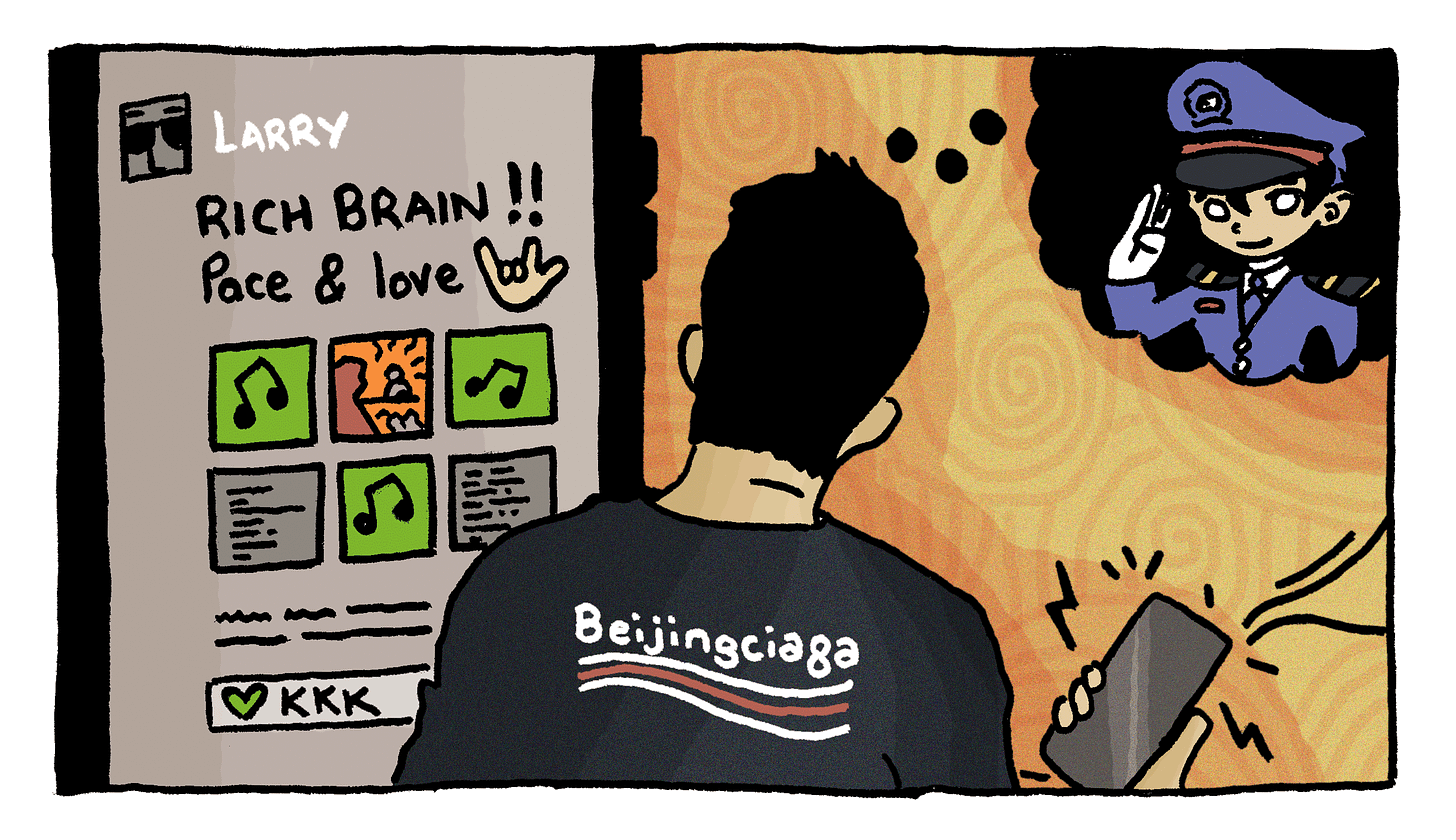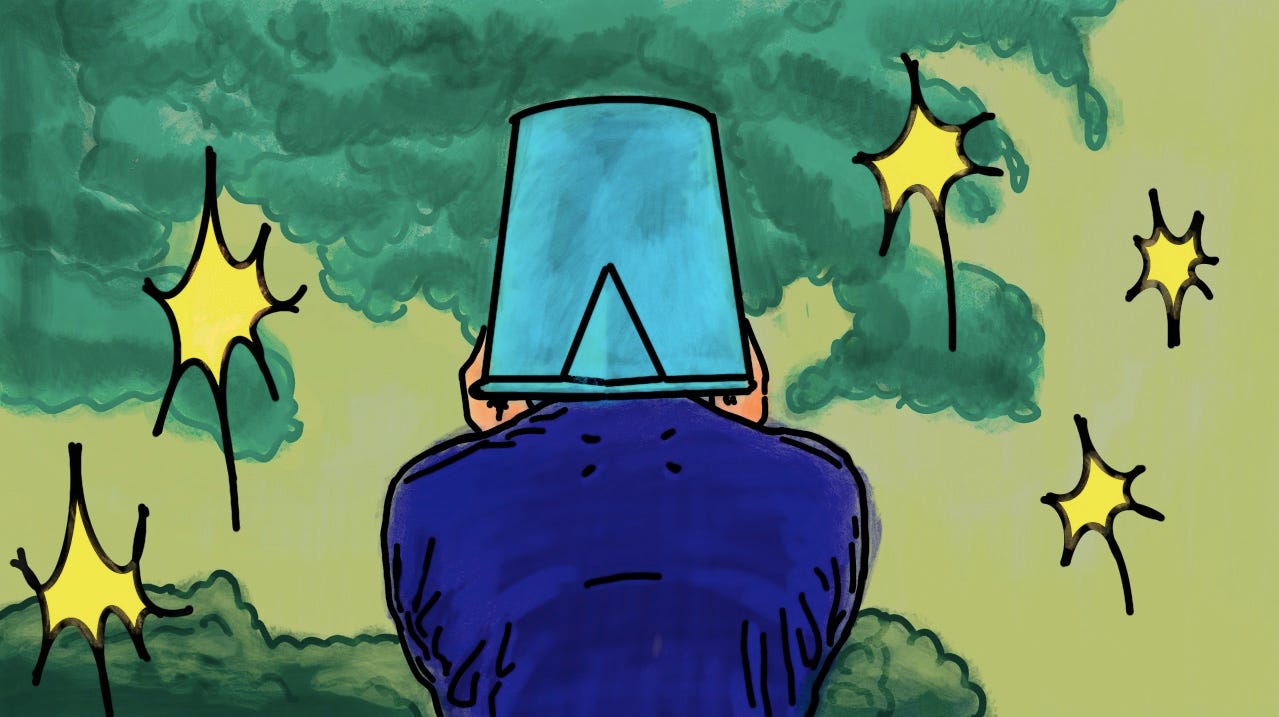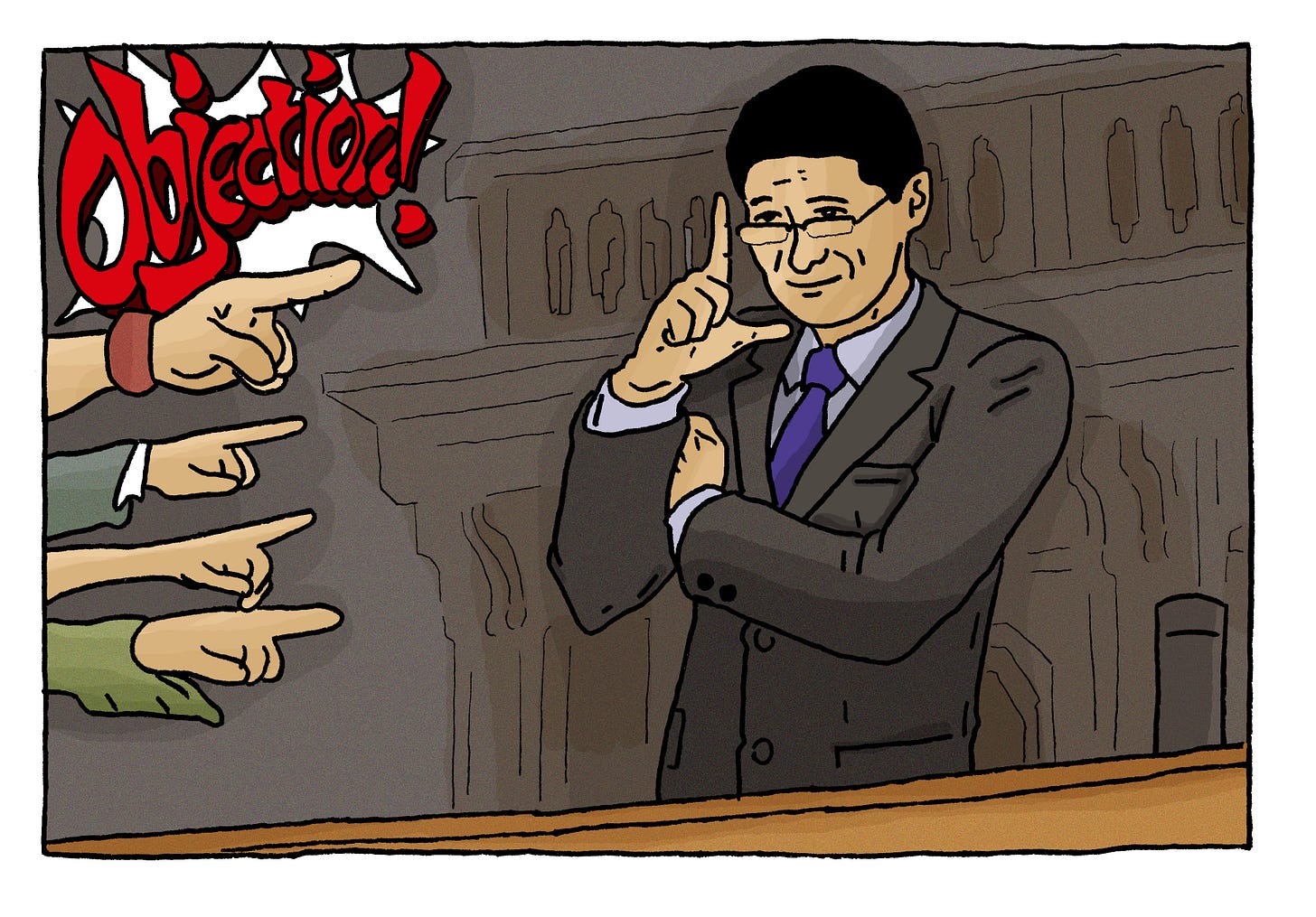
Krish: Hey everyone. This is a slightly different “episode” of Chaoyang Trap. We’re going to cover our pitch guidelines and policies, and ask you all: what would you like to see more of?
Tianyu: We’re in a good place now to start accepting pitches and commissioning paid work. We started this newsletter for many reasons, but a big goal was to be a different kind of platform for new writing about culture and online life in China.
I’d highly recommend reading our introductory statement here to understand where we’re coming from.
Krish: There’s also our first few issues, which should give you a sense of how we write.
We are keen to work with unpublished and first-time writers, both in Chinese and English. Don’t be afraid to pitch if your idea seems rough around the edges—we love inklings, premonitions and vague suspicions. We’ll work with you to shape it into newsletter gold!
We’re also open to commissioning short comics, illustrations and/or photo stories for each of our issues, so really, hit us up with anything you’ve got.
To pitch, just email [email protected] and put “Pitch” in the subject line. We won’t be able to accept every idea, but we will endeavor to reply to each and every one.
What We Pay
Tianyu: For Season 1, we pay 300 RMB per 400-word “dispatch,” with an allowance up to 600 RMB for 1000-word deep dives or additional elements like photos and illustrations. Contributors retain complete rights to their work.
Jaime: We pay like we wish we’d been as freelancers: 50% of fees on acceptance of pitch and 50% on ACCEPTANCE OF first draft. We’ll always aim to do the bulk of editing post-payment.
Krish: This is really important to us. We know the rates aren’t huge right now, but 100% of our subscription revenues goes towards paying contributors and if all goes well, we want to bump up what we can pay for upcoming seasons!
To recap the pitching process:
- To pitch, please email us at [email protected]. We publish fortnightly in “seasons.” Season 1 runs till the end of June, and Season 2 starts in September. We’re taking pitches for both!
- Read past issues to get a sense of how we write. We pay 300 RMB for short dispatches, more (up to 600 RMB) for deep dives or additional elements. We hope to increase this.
- We pay 50% up front on acceptance of pitch and 50% on acceptance of first draft. The bulk of editing and conversation will happen post-payment.
- You own all rights to anything you produce.
Tianyu: I think we can finally get to the actual pitching guidelines now.
The Actual Pitching Guidelines
Krish: We're interested, broadly, in the culture of being online in China and, specifically, in hidden phenomenon, emergent trends and unusual cultural mashups on the Chinese web.
We welcome reportage, field notes, observations, ethnographies, photo essays and the sublime journalistic form of chat screenshots.
If you're not sure what to pitch, here (inspired by Real Life Magazine) are some themes, ideas and questions that this project is obsessed with:
Fandoms and Consumerism
How does the idea of "popular" and "alternative" still work, if it does at all? What's going on with idol culture and fandoms in music, art, film or TV? How are attentions changing, and along with those, how is taste changing—how does class and geography shape all this?
Ting’s story on nisu in Episode 2 is a good example of this, as is Jaime’s profile of Knopha, China’s most important low-key DJ. We’re hoping to write something on the fascinating (and deranged) reality show CHUANG later in Season 1.

Feelings and Dreams
Involution, Sang, 996—what is new language telling us about living and working in China? How are memes created and reproduced? Where are the "dank stashes" of the Chinese web? What's up with all those darkly violent WeChat stickers? What cultural products are being exported or imported?
Tianyu’s story on China’s Instagram meme pages is a good example of this, as is Yi-Ling’s profile of Chen Qiufan in Wired magazine. We have something planned about how fan subtitle groups in China were ideal workplaces, and there’s my side project on Bullshit Jobs in China!
Tactility and Touch
How are screens and spaces mediating tech use? How do people get together? How are they finding each other? How does it all connect to bodies and desire in China?
We don’t have a good story on this theme yet! But our inspirations include our mentor Christina Xu’s talk on “friction” in Chinese app user interfaces and Yan’s photo series on rural data taggers.
Whimsy and Nonsense
How is humour, horror, and absurdity created and consumed in China? What do new forms of pleasure and play look like?
Caiwei’s piece on the “first listeners” of podcasting hits this theme on the head, as does a future story on the “horror” genre in China.

Real and Fake
Where are people forced to have fun, and where are people REALLY having fun?
Simon’s story on Ryuichi Sakamoto fandom gets into this a little bit. Our first paywalled episode next week with musician Bloodzboi REALLY gets into this.
Boredom and Evil
How is time and labour and desire intertwined in China? How do people encounter extreme content? What are they doom-scrolling? How do creators manufacture engagement, and how are obsessions sustained?
Yan’s piece on Luo Xiang intersects with this theme, as does Jaime’s interview with Xiao Hai in Episode 3.

Memory and Amnesia
What are the important archives and how is access granted? What is being protected and filed? What ghosts do you encounter online? How are people recording their lives and interests?
We have a piece coming up on fringe guoxue (国学, or “sinology”) forums that gets into this, and a later issue on online “grifters.” Henry’s piece on how China deals with historical ruins is a good one.
Complicity and Resistance
How is dissent cloaked, and how does subversion thrive? What are the “tells” of political speech in China and where do people learn them?
We’re working on a piece about Douban groups that try to systematize subversion, and we can’t wait to tell the world about the Cold Showers Blockchain.
Tianyu: These categories are suggestions, not rules, so feel free to pitch thoughtful pieces outside of these questions. If you’d like to write something but wish to remain anonymous, we can discuss and accommodate that, too.
Krish: If you’d like to see more of something, less of something, or just the same amount of something, let us know by leaving a comment below! We’re happy to take requests for investigations into unknown corners of the Chinese web.